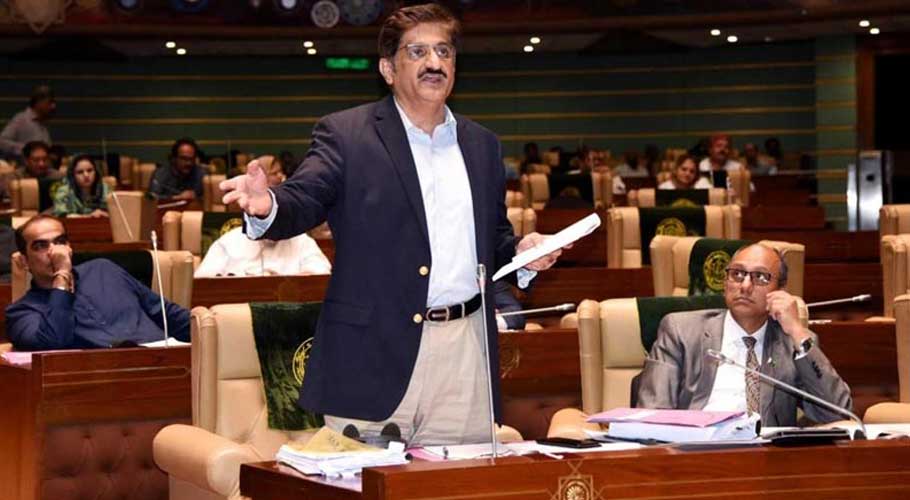KARACHI: Amid opposition’s strong protest and uproar, the ruling Pakistan People’s Party (PPP) on Saturday get passed Local Government (Amendment) Bill, 2021 that will transfer some of the powers to provincial government from metropolitan corporations.
According to details, the legislation designed to amend the provincial LG law, was tabled in the Sindh Assembly by provincial minister Nasir Hussain Shah and was approved by the lawmakers with a majority amid the opposition’s protest.
“This bill is as per the will of the people of Sindh,” Chief Minister Syed Murad Ali Shah said while addressing the floor of the house. During the assembly session, the opposition lawmaker recorded a strong protest and raised slogans against the bill.
This is the second time the Sindh government has taken a stab at changing the law. The first version was passed by the Sindh Assembly last month, but it was rejected by Governor Imran Ismail, who has to give his assent for any law to become an act.
Raising several objections, Sindh Governor Imran Ismail returned the Sindh Local Government (Amendment) Bill 2021 to the Sindh Assembly, asking it to reconsider at least nine points he raised.
However today, the PPP-led treasury benches rejected the amendments proposed by the Governor to the original bill. In reaction, the Opposition parties, including Pakistan Tehreek-e-Insaaf (PTI), Muttahida Qaumi Movement (MQM) and Grand Democratic Alliance (GDA) protested against the treasury in front of the Speaker’s desk.
In the bill, among the major changes conceded by the ruling PPP were removing the clause to elect any person (and not just elected members) as the mayor, deputy mayor, chairperson or vice-chairperson. The clause mandating elections for these posts through secret ballot was also removed.
Speaking on the occasion, CM Sindh Murad Ali Shah said currently, district commissioners and administrators were running cities and towns. “They are bureaucrats and not people who are elected democratically in a local government election,” he added.
The CM talked about the objections to the way the PPP wanted the law to look. “An objection was raised on a ‘non-elected person’ becoming mayor,” he said. However, there are historic examples of exactly this happening, he said. Jamaat-e-Islami’s Niamatullah Khan and Muttahida Qaumi Movement’s Kanwar Naveed were not local government elected members when they became mayors of Karachi and Hyderabad.
The CM also talked about the other changes the PPP wanted. “We have made the Karachi administrator co-chairman of the Karachi water board or KWSB and Sindh garbage management board, SSWMB,” he added.
The chief minister rejected reports that the government has taken powers from local bodies to collect tax. “Transfer tax on immovable properties will be collected by local councils,” he added.
What Constitution says
Article 116 of the Constitution deals with the issue and its clauses 3 and 4 say: “When the Governor has returned a Bill to the Provincial Assembly, it shall be reconsidered by the provincial assembly and, if it is again passed, with or without amendment, by the provincial assembly, by the votes of majority of the members of the provincial assembly present and voting, it shall be again presented to the Governor and the Governor shall give his assent within 10 days, failing which such assent shall be deemed to have been given.
“When the Governor has assented or is deemed to have assented to a bill, it shall become law and be called an act of provincial assembly.”
The bill, which was initially passed amid the opposition’s absence during a session last month, primarily takes away functions of education and health from municipal bodies. It also abolishes district municipal corporations (DMCs) in urban parts of the province, replacing them with town municipal corporations.


































